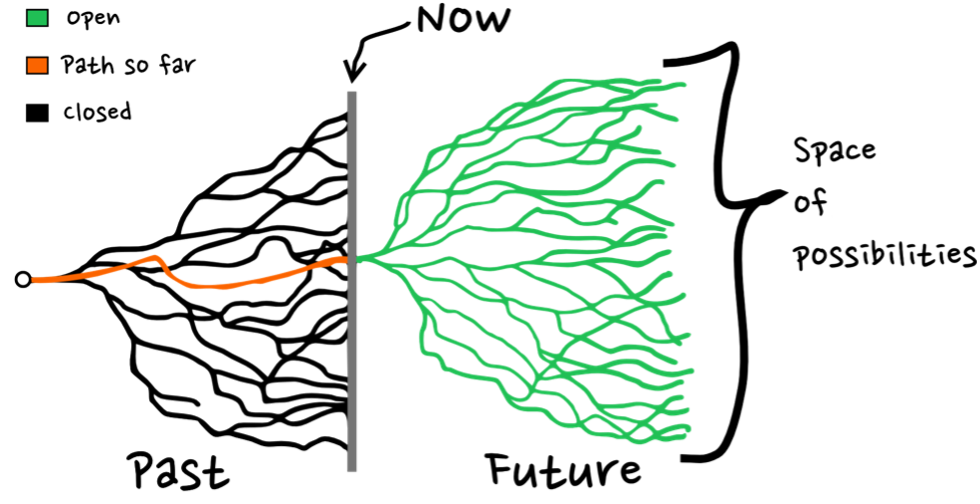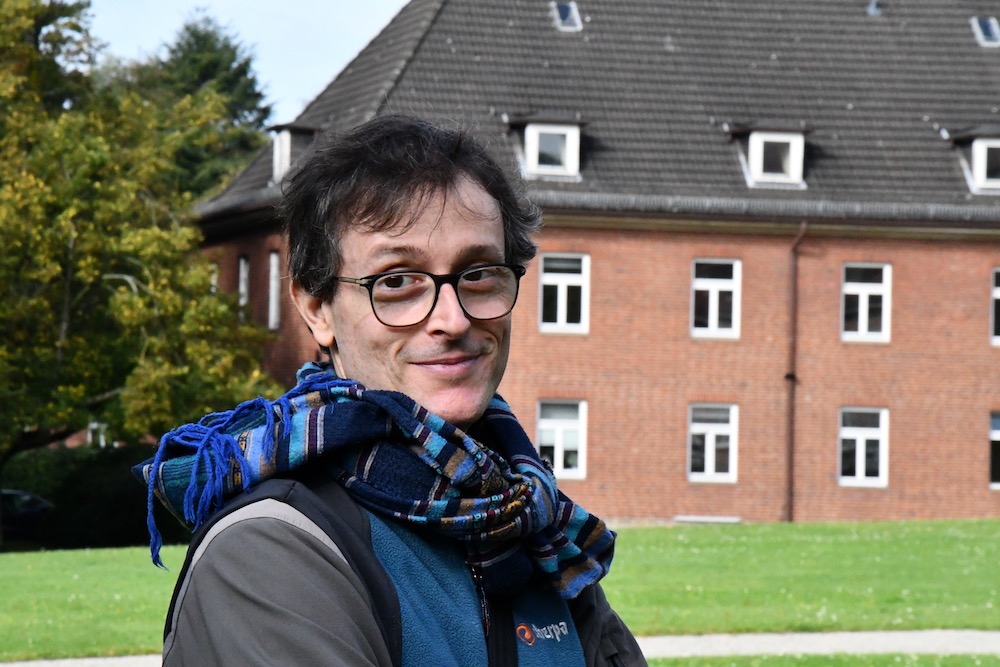EXPLORE Career Profiles
1. What did you want to be when you were 10?
Oscillating in between a coroner, an archaeologist, and a fossil (or mineral) hunter. I realised later a geologist is a bit of all of them. And medicine was not my thing anyway.
2. What was your favourite subject at school?
Natural sciences, and later Latin and Earth Sciences. Old dead things, mostly.
3. What did you study at university? Why did you choose those topics and the places to study?
I studied geology. I went through my high school years forgetting my childhood’s visceral attraction to geology, and somehow it came out again in the end. There was a geoscience program just started (the department was founded just 2-3 years before) in a nearby city, and I enrolled. That was it.
4. How did you get your first job? How many jobs have you had since?
A PhD stipend perhaps does not quite qualify as job, but in the years I was doing my PhD, I also worked for a little while as a surveyor for the Italian geological mapping programme, as a new edition of the local systematic geological map was being prepared. Funnily enough, back then we were experimenting with digital mapping. Only, technology was not like now (digital mapping with tablets is nowadays quite normal): we had clunky devices, and obscure software that I goofily adapted from something developed by USGS in Alaska (and actually kindly provided by them).
I was then at ESA in the Netherlands for some years, then at ISSI in Switzerland, and at Constructor (formerly Jacobs University) for the last decade.
5. What’s been the biggest piece of luck or ‘surprise twist’ you have had in your career to date?
To be honest I had many lucks, but none uniquely shaped my career. They did shape my view on things, though. Since you ask, let me try and recall a small selection:
- When I was working for my undergraduate thesis and, later, during my PhD, the lab hosting me had a few visitors and researchers. I want to list few of them: Goro Komatsu (later he became a professor at my Alma Mater), Jens Ormö (he is at CAB in Madrid now), and for a sabbatical also Paul Geissler (at USGS Flagstaff now, back then at University of Arizona), and shortly people like Jeff Kargel (UoA). For me, that was a very enriching time, being exposed to many research topics, but mostly different people, and backgrounds. You don’t have time for anecdotes now, maybe one day…
- Later, when I was at ESA as research fellow, I had the luck – truly, this time, as I was there between 2005 and 2008 – to be involved with Mars Express, a mission that was in its early phases. It was then that I started appreciating openness with data (In this respect the MEX HRSC team was exemplary), rather than planetary mission experiments as exclusive club. A decade later this was one of the motivation inspiring the co-founding of OpenPlanetary
- Finally, at ISSI in Bern, I had the luck to meet and interact with Johannes Geiss (see below), and many others. Apart from the fact that the entire ISSI staff is lovely, Johannes was an encyclopedic, deep scholar and an amazing character.
6. Have you had a mentor or person that inspired you? How did they help you?
Yes, very much. I have a few. First and foremost my late palaeontology professor from my undergraduate times: Giovanni Jack Pallini. Then, many years later, the late Johannes Geiss, who was a legend and the funniest and most – gently – iconoclastic scientist I have ever met. And Roger Maurice Bonnet, who is one of the most elegant leaders I recall (plus, decades later, we still chew planetary missions he has made possible…). They helped me through their example, not just with words… with things adsorbed, and not necessarily realised immediately.
7. What are the main things you do each day?
Curse my two cats jumping on my laptop while I work, or dipping their paws into my cup of tea.
8. What do you like best about the work that you do and what do you like least?
- I actually like geology because at the same time it deals with the past – the forgotten and the buried – and also what happens now, and what might happen in the future. I don’t think it is the only discipline to give this multi-scale view of things (spatial, temporal), but it is definitely one of those providing the broadest view.
- Regardless geology, since running projects is what I have been done in practice in all those years, what I like is to make things happen.
- What do I like least? Dealing with (most) academics, and their terrible time management skills.
9. Do you have ambitions or things that you would like to do next?
I prefer to answer to this question next year 😉 But if you really insist: to learn and explore new things.
10. What advice would you give your 10-year-old self?
- I don’t know… I tried many paths, I messed up a few, and overall, if I look back, at certain junctions where life could have gone one way or another, I realise that I am OK with what I did. I own it, even if it is not the best way according to mainstream metrics. But metrics are a bit of a trap, anyway. There is actually a drawing that I saw a couple of years ago, and I think it is all I would like just to show to my 10 year-old self. Rather sure that he would not get it. And that is fine, too.

Quick CV
- Academic qualifications
- 2004 – Ph.D., IRSPS, Univ. Chieti, Italy
- 2000 – Degree in Earth Sciences, Univ. Chieti, Italy
- Main or selected jobs to date:
- 2011-present – Constructor University (Bremen, Germany)
- 2005-2008 – European Space Agency (Noordwijk, the Netherlands)
- 2008-2010 – International Space Science Institute (Bern, Switzerland)
EXPLORE has received funding from the European Union’s Horizon 2020 research and innovation programme under grant agreement No 101004214.



